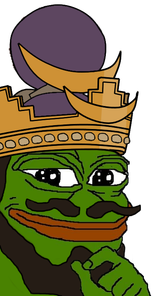Search Results
7/8/2025, 9:50:58 PM
>>509855433
>>509855849
>>509856183
>>509856653
>>509856997
>The enemies include Kavi and Kavaṣa, the enemy tribes Pṛśu, Pṛthu, Paktha, Bhalana (RV 7:18:7) are collectively known as Dāsa, some of them as Paṇi (lambasted already in 7:6:3), and their priests as Dasyu. Practically all the names of enemy tribes or enemy leaders are Iranian or pertain to tribes known from Greco-Roman sources as Iranian: Kavi, the name of the Iranian dynasty still featuring in Zarathuštra’s Gāthās (e.g. Gāthā 51:16, Insler 1975:107); Kavaśa/Kaoša; Dāsa/Dahae; Dasyu/Danghyu; Paṇi/Parnoi; Ānava/Anaoi; Parśu/Persoi; Pṛthu/Parthoi; Paktha/Paštu; Bhalāna/Baluc/Bolān
>Bhrigus, one of the Indo-Aryan tribes that lost in the Battle of the Ten Kings, were probably the priestly family descended from the ancient Kavi Bhrigu. Later, they are related to the composition of parts of the Atharva Veda (Bhṛgv-Āṅgirasa)
>In VII.83.1, "the Pṛthus and the Parśus" have often been mistranslated. Griffith says: "Ludwig declares that the former meaning is perfectly impossible, and argues that pṛithu-parśavah must mean 'the Pṛithus and the Parśus'". the leader of the alliance against Sudās in the battle is Kavi Cāyamāna (VII.18.8), whose ancestor Abhyāvartin Cāyamāna is clearly called a Pārthava in VI.27.8
>Parsus have been connected with the Persians based on the evidence of an Assyrian inscription from 844 BC referring to the Persians as Parshu, and the Behistun Inscription of Darius I of Persia referring to Parsa as the home of the Persians. Pârsâ, is the Old Persian name for the Persis region Pars province as well as the root for the term Persian
>>509855849
>>509856183
>>509856653
>>509856997
>The enemies include Kavi and Kavaṣa, the enemy tribes Pṛśu, Pṛthu, Paktha, Bhalana (RV 7:18:7) are collectively known as Dāsa, some of them as Paṇi (lambasted already in 7:6:3), and their priests as Dasyu. Practically all the names of enemy tribes or enemy leaders are Iranian or pertain to tribes known from Greco-Roman sources as Iranian: Kavi, the name of the Iranian dynasty still featuring in Zarathuštra’s Gāthās (e.g. Gāthā 51:16, Insler 1975:107); Kavaśa/Kaoša; Dāsa/Dahae; Dasyu/Danghyu; Paṇi/Parnoi; Ānava/Anaoi; Parśu/Persoi; Pṛthu/Parthoi; Paktha/Paštu; Bhalāna/Baluc/Bolān
>Bhrigus, one of the Indo-Aryan tribes that lost in the Battle of the Ten Kings, were probably the priestly family descended from the ancient Kavi Bhrigu. Later, they are related to the composition of parts of the Atharva Veda (Bhṛgv-Āṅgirasa)
>In VII.83.1, "the Pṛthus and the Parśus" have often been mistranslated. Griffith says: "Ludwig declares that the former meaning is perfectly impossible, and argues that pṛithu-parśavah must mean 'the Pṛithus and the Parśus'". the leader of the alliance against Sudās in the battle is Kavi Cāyamāna (VII.18.8), whose ancestor Abhyāvartin Cāyamāna is clearly called a Pārthava in VI.27.8
>Parsus have been connected with the Persians based on the evidence of an Assyrian inscription from 844 BC referring to the Persians as Parshu, and the Behistun Inscription of Darius I of Persia referring to Parsa as the home of the Persians. Pârsâ, is the Old Persian name for the Persis region Pars province as well as the root for the term Persian
Page 1
